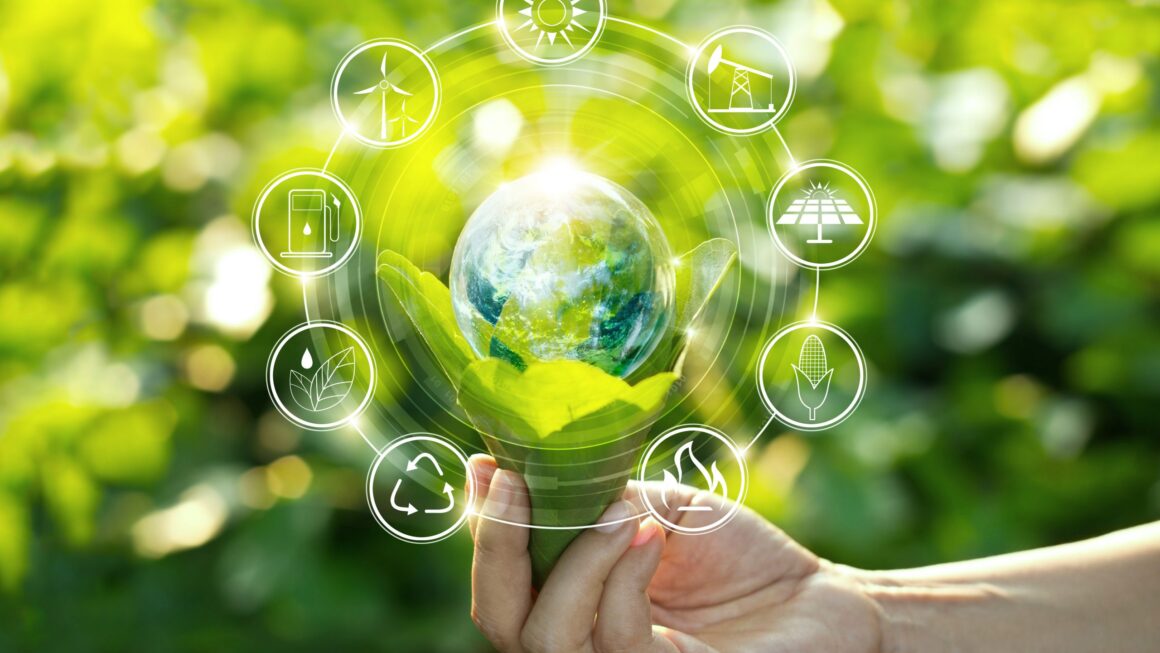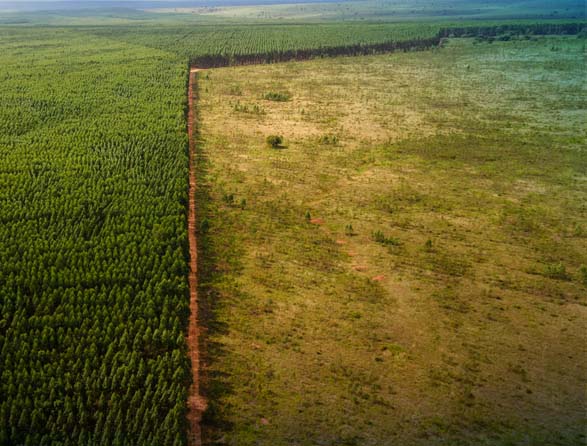Sustainability has become one of the most pressing global issues of our time. The ongoing challenges of climate change, resource depletion, and environmental degradation are demanding a shift in how we approach development, consumption, and resource management. Achieving true sustainability is not just about addressing environmental concerns, but also ensuring economic growth, social equity, and long-term prosperity for future generations. In this article, we explore the key strategies for achieving true sustainability and how individuals, businesses, and governments can work together to create a more sustainable future.
Key Takeaways
- Sustainability is a holistic concept that encompasses environmental, social, and economic factors.
- Transitioning to renewable energy, promoting circular economy practices, and fostering sustainable agriculture are critical for achieving sustainability.
- Individual actions, such as reducing consumption and adopting sustainable lifestyles, can make a significant impact.
- Strong environmental policies and global cooperation are essential for addressing global sustainability challenges.
- True sustainability requires collective effort from all sectors of society to ensure a healthy and equitable future for all.
Understanding Sustainability
Before diving into the strategies for achieving sustainability, it’s important to define what sustainability means. Broadly speaking, sustainability refers to the capacity to endure and maintain balance over time without depleting resources or causing harm to the environment, society, or economy. The United Nations’ Brundtland Commission (1987) defined sustainable development as development that meets the needs of the present without compromising the ability of future generations to meet their own needs.
This means that sustainability is multi-dimensional, encompassing environmental, social, and economic factors. These three pillars are commonly referred to as the triple bottom line—people, planet, and profit. All three need to be addressed in order to achieve true sustainability.
Key Strategies for Achieving True Sustainability
Achieving true sustainability requires a multi-faceted approach that integrates systemic changes in production, consumption, governance, and individual behavior. Below are some of the key strategies that can pave the way toward a more sustainable future.
1. Transition to Renewable Energy Sources
One of the most important strategies for achieving sustainability is transitioning to renewable energy sources. Fossil fuels are the main contributors to global warming and air pollution, and their extraction and consumption have led to the depletion of natural resources. Renewable energy sources like solar, wind, hydroelectric, and geothermal offer a cleaner, more sustainable alternative.
Governments, businesses, and individuals all have roles to play in this transition. Governments can incentivize the use of renewable energy by providing subsidies, tax incentives, and implementing policies that support green energy initiatives. Businesses can adopt renewable energy technologies to power their operations, and individuals can make the switch to clean energy at home through solar panels, energy-efficient appliances, and reducing energy consumption.
2. Promote Circular Economy Practices
The traditional linear economy, where products are made, used, and discarded, leads to excessive waste and resource depletion. A circular economy is a model that promotes the reuse, recycling, and repurposing of materials to extend the lifecycle of products and minimize waste. The goal is to create a closed-loop system where materials are continually reused and nothing is wasted.
Businesses can integrate circular economy principles by designing products that are durable, recyclable, and easier to repair. Consumers can support this model by choosing products that are made to last and that can be recycled or upcycled. Governments can facilitate this transition by setting regulations and providing incentives for businesses to adopt circular economy practices.
3. Implement Sustainable Agriculture
Sustainable agriculture is another essential component of achieving true sustainability. Conventional farming practices often rely on harmful chemicals, excessive water usage, and unsustainable land practices, all of which contribute to environmental degradation. In contrast, sustainable agriculture focuses on methods that protect the environment, improve soil health, and ensure food security for future generations.
Key strategies for sustainable agriculture include crop rotation, agroforestry, organic farming, and water conservation. By reducing the carbon footprint of agricultural practices and supporting biodiversity, sustainable agriculture can help feed a growing global population without compromising the planet’s health.
4. Prioritize Conservation of Natural Resources
Conserving natural resources is a fundamental aspect of sustainability. Overconsumption of resources such as water, fossil fuels, forests, and minerals puts significant pressure on ecosystems and threatens biodiversity. To achieve sustainability, it is crucial to adopt strategies that promote resource efficiency and conservation.
This can be achieved through practices like water conservation, reducing deforestation, and promoting responsible resource extraction. Additionally, conservation efforts should focus on protecting natural habitats and promoting biodiversity to ensure the resilience of ecosystems.
5. Foster Sustainable Urbanization
As the global population continues to rise, urbanization is becoming an increasingly important issue. Cities are major contributors to environmental pollution, but they also hold the potential to drive sustainability if properly designed and managed. Sustainable urbanization focuses on creating cities that are resource-efficient, low-carbon, and livable for all residents.
Key strategies include improving public transportation, promoting green buildings, enhancing waste management, and creating green spaces. Smart city technologies, such as renewable energy grids, waste-to-energy systems, and sustainable water management, can also contribute to urban sustainability.
6. Adopt Sustainable Consumption and Lifestyle Choices
Individual actions are a powerful force in the movement toward sustainability. The choices we make as consumers, such as the products we buy, the food we eat, and the way we travel, have significant environmental and social impacts. Adopting a more sustainable lifestyle involves reducing consumption, choosing eco-friendly products, and being mindful of the resources we use.
Some strategies include reducing food waste, opting for plant-based diets, choosing sustainable fashion, and minimizing the use of single-use plastics. By supporting companies that prioritize sustainability and making informed purchasing decisions, consumers can help shift demand toward more responsible and sustainable products.
7. Strengthen Environmental Policies and Global Cooperation
Governments play a critical role in creating the policy frameworks that support sustainability. Effective environmental policies are essential for driving change at both the national and international levels. These policies can include carbon pricing, emission reduction targets, environmental regulations, and investment in clean energy infrastructure.
In addition to national policies, international cooperation is also vital for addressing global challenges such as climate change. Agreements like the Paris Agreement on climate change demonstrate the importance of working together across borders to tackle sustainability issues on a global scale.
Conclusion
Achieving true sustainability is a complex, multifaceted challenge, but it is essential for ensuring a livable planet for future generations. The key strategies outlined in this article—transitioning to renewable energy, promoting circular economies, sustainable agriculture, resource conservation, sustainable urbanization, sustainable consumption, and strong environmental policies—are all essential in building a more sustainable world.
While these strategies are interdependent and require collective action from individuals, businesses, and governments, they offer a roadmap for creating a future where both people and the planet thrive. Through innovation, commitment, and collaboration, true sustainability can become a reality.
Frequently Asked Questions (FAQs)
- What is the importance of sustainability? Sustainability is crucial for ensuring that the planet’s resources are preserved for future generations. It also helps mitigate climate change, protect biodiversity, and create a fairer, more equitable society.
- How can individuals contribute to sustainability? Individuals can contribute by making sustainable choices in their daily lives, such as reducing waste, conserving energy, using public transportation, supporting eco-friendly businesses, and consuming less.
- What are renewable energy sources? Renewable energy sources include solar, wind, hydroelectric, and geothermal power. These sources are sustainable because they do not deplete natural resources and have minimal environmental impact compared to fossil fuels.
- What is a circular economy? A circular economy is a system where products, materials, and resources are reused, repaired, and recycled rather than disposed of after use. This helps reduce waste and conserve natural resources.
- What are sustainable agriculture practices? Sustainable agriculture involves farming techniques that protect the environment, conserve water, reduce reliance on chemicals, and promote biodiversity. Examples include crop rotation, organic farming, and agroforestry.
- What are smart cities? Smart cities use technology to improve sustainability and quality of life. This includes efficient energy systems, sustainable transportation, waste management, and water conservation.
- Why is global cooperation important for sustainability? Environmental issues like climate change and biodiversity loss are global challenges that require collective action. International cooperation ensures that countries work together to address these challenges and share solutions.



